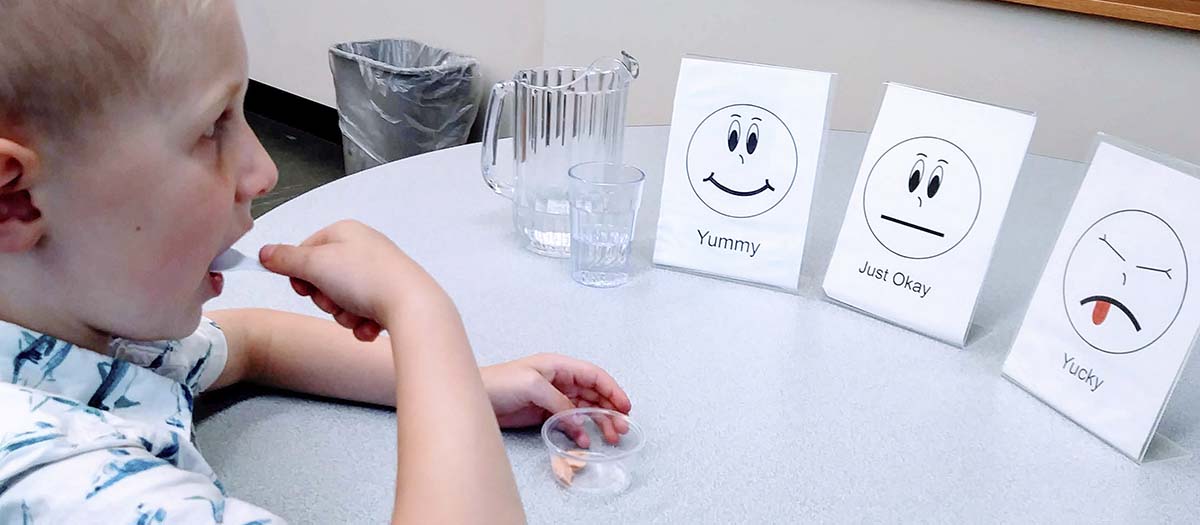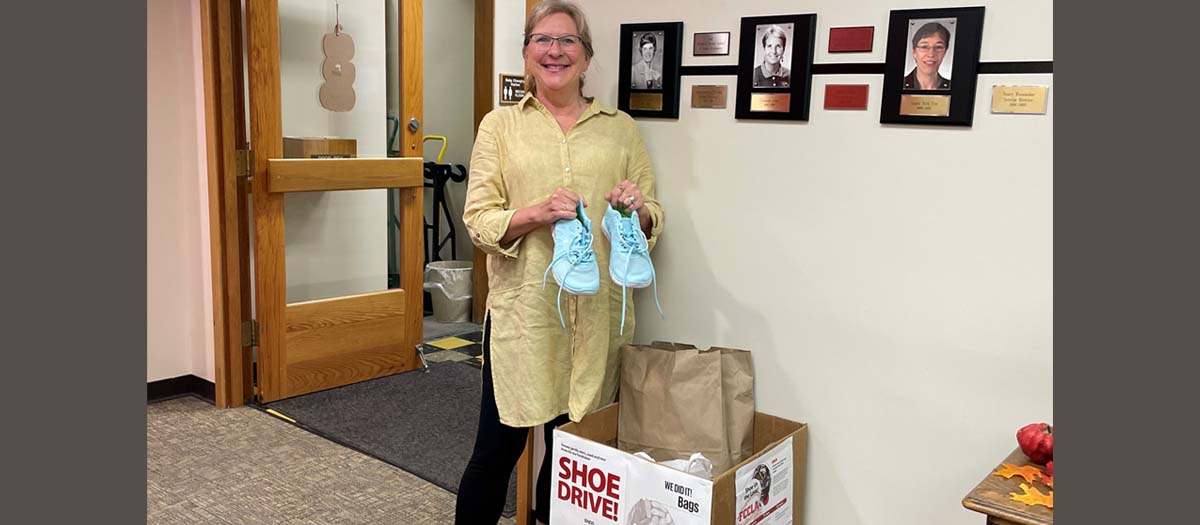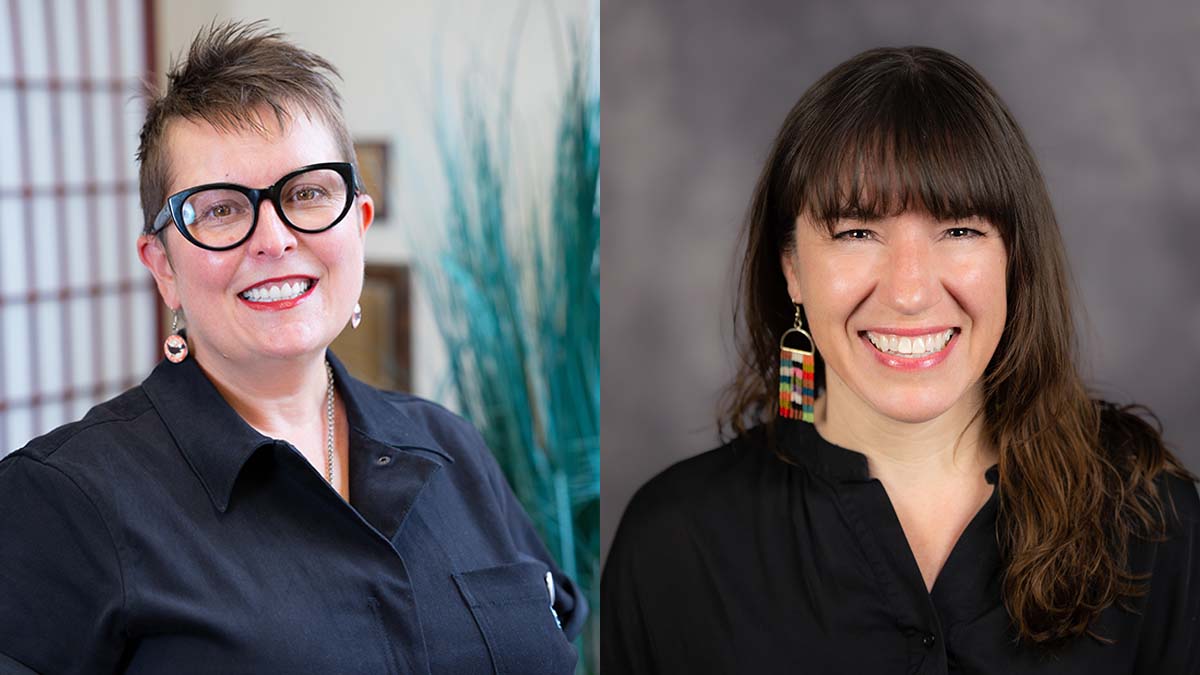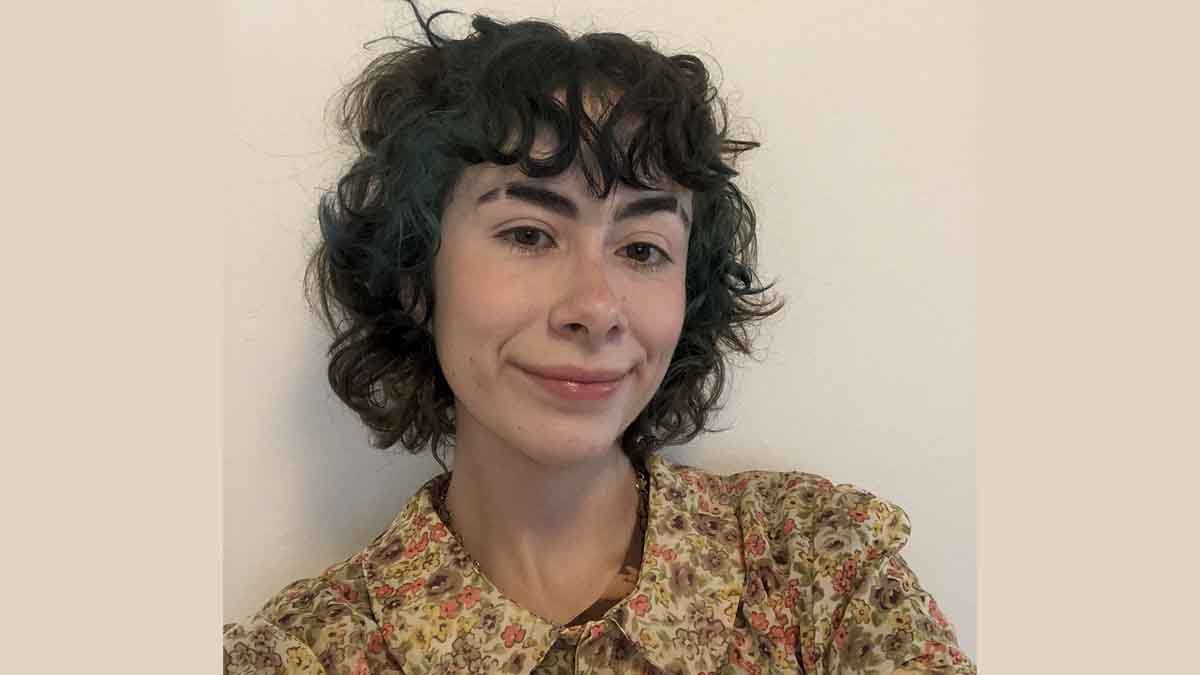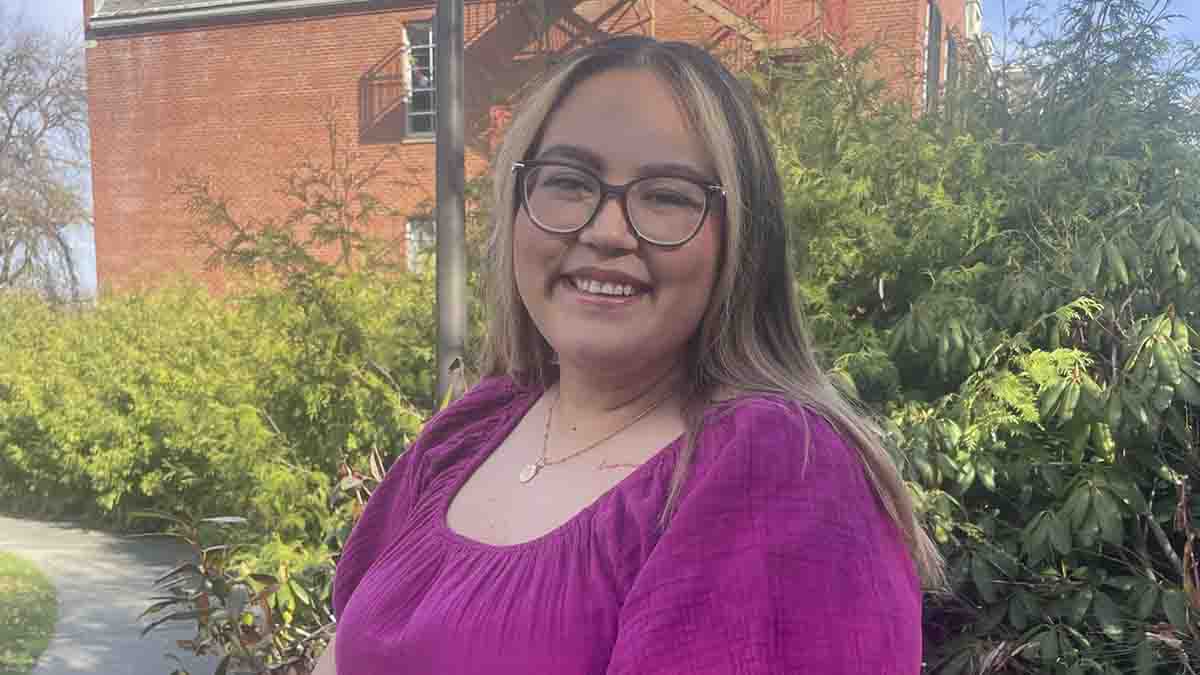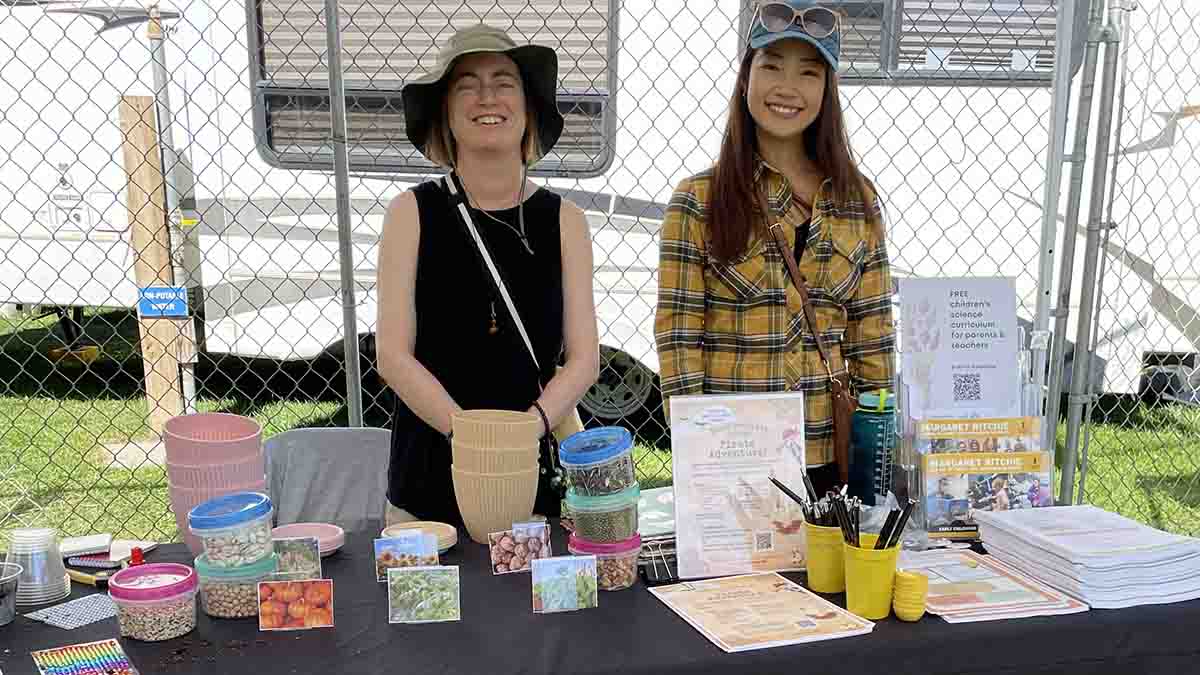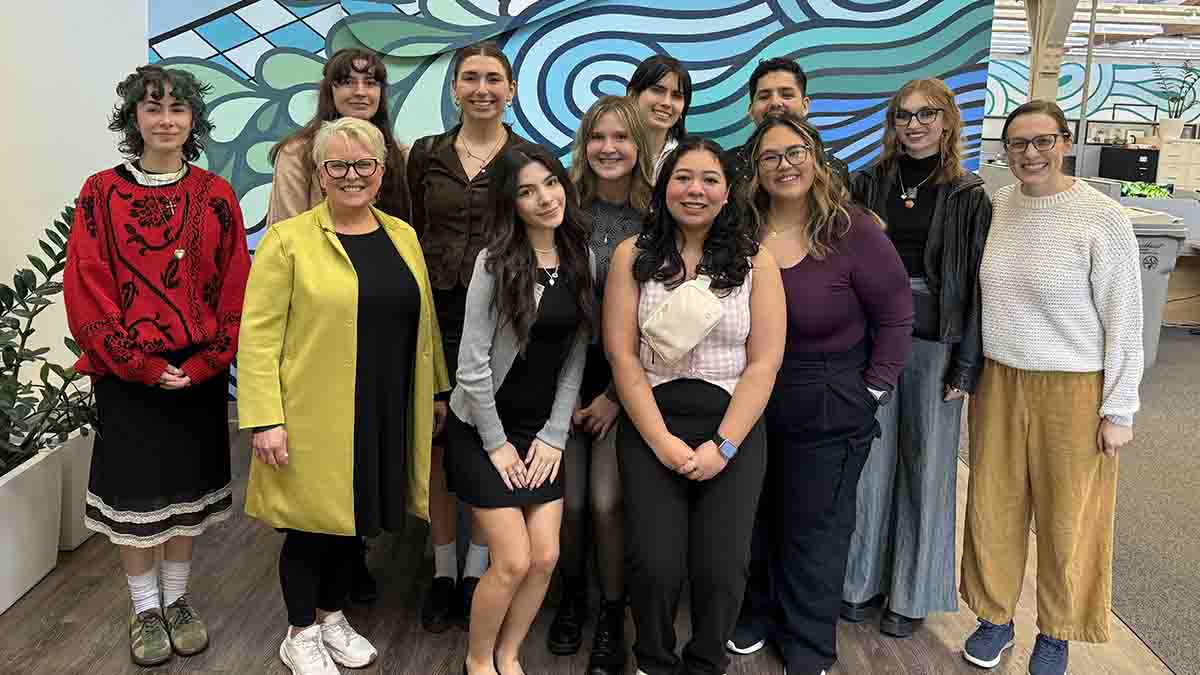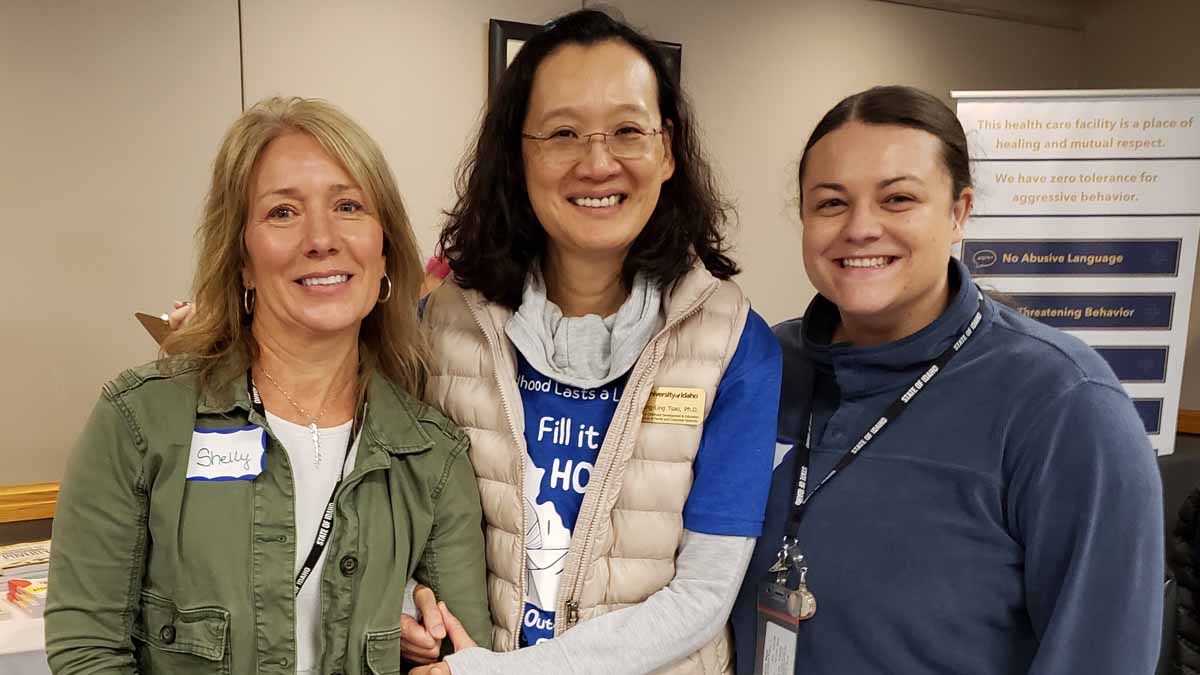FCS Connections, November 2024
Director’s Message
The University of Idaho’s Margaret Ritchie School of Family and Consumer Sciences has evolved into a vibrant hub of research and innovation, dedicated to enhancing the quality of life for individuals and communities. Through our comprehensive programs and impactful research initiatives, the school is making significant strides in dietetics, child development and education, nutritional sciences, apparel and textiles, human development and family studies, and personal and family finance — fostering a spirit of collaboration and care among faculty and students.
A key indicator of the school’s research productivity is its diverse array of graduate degrees. Until recently, we had only a single graduate degree — that was in family and consumer sciences. We now support four master's degrees: dietetics; family and consumer sciences; child development; and nutritional sciences; and one doctoral degree in nutritional sciences. In fact, this spring we are extremely proud that we will be awarding the very first doctorate degree ever offered by the Margaret Ritchie School in Family and Consumer Sciences (FCS). Our foremothers would be extremely pleased.
Our programs empower students to explore their own unique passions and equip them with the knowledge needed to address the complex challenges faced by today’s families and communities. By emphasizing practical applications and hands-on experiences, the school ensures that graduates are well-prepared to make meaningful contributions in their fields.
The faculty at the school are not just educators; they are dedicated researchers and compassionate leaders. With nearly $26 million in federally funded research currently underway, they are engaged in projects that benefit both Idaho and communities across the globe. This impressive funding reflects the trust placed in the school’s commitment to tackling pressing issues. Faculty members collaborate with various organizations, government agencies and other institutions to ensure their research is relevant and impactful.
Central to the school’s mission is the belief that education should extend beyond the classroom. Faculty and students work together to bridge the gap between academic research and community needs, emphasizing relationships and outreach. This commitment is evident in initiatives that translate research findings into practical solutions, ensuring that the insights gained are relevant and beneficial to those they serve. By engaging with community partners and stakeholders, the school not only enhances its research but also strengthens its impact on public health and family dynamics.
The school also focuses on promoting healthy lifestyles through research in nutrition, empowering individuals to make informed choices that enhance their well-being. Projects aimed at improving dietary habits, understanding food security and insecurity, and addressing health and gender disparities are central to the school’s efforts. Additionally, our faculty address the vital area of child development and education, implementing evidence-based interventions that support children, their families and their teachers. By fostering a holistic approach to health and well-being, FCS demonstrates its commitment to the interconnectedness of family and community.
Ultimately, FCS is driven by a mission to help people — regardless of where they live and who they are — live their best lives. This guiding principle shapes its research, education and outreach efforts, fostering a supportive environment where collaboration thrives, and innovative solutions emerge. Through our genuine dedication to excellence, our faculty, staff and students continue to make a positive impact on the lives of individuals and families, exemplifying the transformative power of family and consumer sciences. As we all collectively look to the future, the school remains committed to advancing knowledge, nurturing relationships and promoting well-being in all its forms, paving the way for a healthier and more empowered society.
I hope you enjoy this issue of Connections, which highlights so many amazing aspects of all that we do here in the beautiful and historic Niccolls Building. Please stop in and see us anytime. We would love to see you!
 Sincerely,
Sincerely,
Shelley McGuire, Ph.D.
Director and Professor of Nutrition
Our Stories

Expanding Children’s Palates
A University of Idaho-led study aims to test a time-honored strategy among parents seeking to motivate their young children to try new foods and expand their palates.
Annie Roe, associate professor and Extension specialist within the Margaret Ritchie School of Family and Consumer Sciences, is principal investigator of a five-year, $1.13-million U.S. Department of Agriculture (USDA) grant evaluating how repeated exposure to food served with a dose of knowledge can influence dietary habits. Roe’s grant also funds two other prongs — a trout sensory evaluation in partnership with Washington State University (WSU) and a study assessing trout consumption in homes.
Roe and her colleagues have set a high bar for the repeated-exposure component, attempting to hook 4- to 6-year-olds who attend local childcare facilities on eating trout. Specifically, they’re serving strains of trout bred in collaboration with U of I’s Aquaculture Research Institute (ARI) to thrive on plant-based feed, including one trout strain containing roughly 30% higher levels of essential omega-3 fatty acids.
On a weekly basis over 12 weeks, participating children are fed poached trout fillets, served cold with no seasoning. Prior to receiving the trout, one group of children hears a child-centered nutrition phrase repeated three times — “Trout helps your brain so you can learn and play.”
The researchers hypothesize that the children who hear child-centered nutrition phrases will be more apt to eat trout than those who are repeatedly served trout without messaging. Furthermore, they anticipate trout consumption will be lowest among a control group of children who are served trout only at the beginning and end of the study but are invited to play games with the research team, eliminating the potential for bias related to the excitement of participating in a study. The project’s repeated-exposure component is entering its second and final year and will include 99 children evenly divided into the three groups.
Trout are an important source of protein, vitamin B and omega-3 fatty acids, which are important for brain development and heart health. Idaho is the top producer of trout in the U.S., raising about 70% of the nation’s domestic trout supply.
“In every one of the Dietary Guidelines for Americans we come out with more evidence that yes, we should be eating more fish every week,” Roe said. “We’re starting with kids because building those dietary habits early on and those taste preferences early on can set us up for future success.”
The researchers are administering the NIH Toolbox for Assessment of Neurological and Behavioral Function to measure potential improvements in children’s cognition and emotional wellbeing due to their trout consumption. Furthermore, parents are asked to complete a survey of their child’s emotional wellbeing.
Carolyn Ross, a professor of food science at WSU and director of its Sensory Science Center, is co-principal investigator of the grant and is leading the sensory component. She has already tested a cohort of 51 children and will next evaluate sensory preferences among adults. Ross is feeding participants three types of trout — ARI’s high omega-3 strain raised solely on plant feed, that strain finished on fish meal and another ARI strain with normal omega-3 levels.
The sensory evaluation should generate important consumer data about the ARI strains.
“What we’re trying to capture is if there is a difference in the texture, in the fishiness, in the flavor and in preference among these three types of trout,” Roe said.
Roe is director of Eat Smart Idaho — a UI Extension program that provides nutrition and physical activity education for Idahoans with limited resources. She will recruit Eat Smart Idaho participants to partake in the trout study’s at-home component. As part of the grant, UI Extension is developing an online curriculum called About Trout! Pond to Plate offering 12 lessons in trout nutrition. The curriculum will cover topics such as where to catch or buy trout, how to cook trout, food safety, how to use child-centered nutrition phrases to encourage children to eat trout and nutritional benefits of eating trout.
Families in northern Idaho and the Magic Valley participating in the at-home component will be divided into groups receiving 1) only Eat Smart Idaho curriculum, 2) both Eat Smart Idaho and About Trout! Pond to Plate, 3) access to both programs plus a supply of trout and 4) access only to Eat Smart Idaho plus a supply of trout. The study should provide insights into how nutritional education and access to healthy foods such as trout affect eating habits of both parents and their children, thereby improving brain health.
“It’s kind of having this whole package of helping parents to introduce foods and use repeated exposure and those child-centered nutrition phrases in the home,” Roe said.
The grant will support five graduate students at U of I, including three who are set to graduate next summer with master’s degrees in nutritional science.
ARI has partnered with USDA since 2000 to conventionally breed trout capable of gaining weight rapidly on a plant-based diet, positioning the industry to operate sustainably without mining oceans for fish meal. The USDA estimates three-quarters of all strains of farm-raised rainbow trout in the U.S. possess some of the plant-based-diet genetics from Hagerman.
The ARI/USDA trout strains can gain more than a pound of weight in roughly six months on a plant-based diet, which is faster than it takes for conventional trout to gain a pound on fish meal. The ability for trout to thrive on plant-based feed is a complex polygenic trait, which the researchers serendipitously discovered is also linked with elevated omega-3 fatty acids. Matt Powell, interim associate dean of research and director of the Idaho Agricultural Experiment Station, has been collaborating with the USDA Trout Grains Project breeding program for several years.
“We have taken this carnivorous trout and essentially made a vegetarian out of it,” Powell said. “We are improving the sustainability of growing fish by feeding them plant protein sources.”
Researchers involved in the trout nutrition grant — Anne Roe, Matt Powell, Shelly Johnson, Siew Guan Lee, Jacob Bledsoe, Jenna Gardiner, Jacqualine Davis, Hannah Kindelspire and Jolene Whiteley from U of I and Ross and Rachel Potter from WSU — presented a poster on the project, “Increasing Trout Consumption in Young Children and Families for Cognitive and Mental Health Benefit: Year One,” during the Society of Nutrition Education and Behavior summer meeting.
The trout nutrition project is funded over five years with $1.13 million from USDA’s National Institute of Food and Agriculture under award No. 2023-69015-39605, of which 100% is the federal share.

FCCLA Returns to U of I
Members of University of Idaho’s recently resurrected chapter of Family, Career and Community Leaders of America (FCCLA) are conducting a large-scale fundraiser that will also benefit people in developing nations.
FCCLA is a career and technical student organization, like FFA, that operates within schools and teaches life skills in the family and consumer sciences (FCS). Members of the organization attend leadership conferences, engage in community service and participate in competitions covering the gamut of FCS disciplines.
U of I brought back its FCCLA chapter during the 2023-2024 school year. The chapter recently started a statewide shoe drive, accepting donations of used shoes in good condition at drop boxes on campus in the Niccolls Building and the E.J. Iddings Agricultural Sciences Building, as well as at the university’s off-campus agricultural research and Extension centers and the UI Extension office in Ada County, located at 5880 Glenwood St., Boise.
Donations will be accepted through Dec. 1, though the drive may be extended if the club falls short of its lofty goal of filling a tractor-trailer with donated shoes.
The shoes will be given to Funds2orgs, which is a global social enterprise headquartered in Florida, for distribution to micro-entrepreneurs in 26 developing nations. The micro-entrepreneurs will sell the shoes in second-hand stores in their communities, and the U of I FCCLA chapter will receive $10,000 for the load of shoes. Shoes should be free of holes and have tread remaining on the soles.
The chapter intends to use some of the funding to help FCCLA students participate in competitions. High school chapters that drop off shoes at U of I research and extension centers will receive a share of the proceeds proportionate to their donation. The U of I FCCLA chapter will donate much of the funding to members’ favorite Idaho charitable causes.
“I’m spreading the word to all FCCLA groups throughout Idaho to contribute,” said Ginny Lane, advisor of U of I’s FCCLA chapter and a registered dietitian who is an assistant professor within the Margaret Ritchie School of Family and Consumer Sciences. “Lots of people have huge amounts of shoes they collect, and they don’t wear many of them, and they don’t know what to do with the rest. Having a cause like this gives them an opportunity to make good use of them.”
In addition to the shoe drive, the U of I FCCLA chapter also organized a fall pumpkin-carving event.
The chapter lost several members from last year due to graduation and is focused on recruiting, with plans to begin hosting regular meetings on Wednesdays. Abbigail Bishop, an FCS education major who is minoring in nutrition, is the chapter’s president.
“We feel like a lot of the FCS education majors don’t really know what FCCLA is, and when you become an FCS teacher you have to have a career and technical student organization under you,” Bishop said. “FCCLA is an option.”
Members of the U of I chapter will volunteer to evaluate high school students who participate in FCCLA competitions during the Idaho Student Leadership Conference, scheduled for April 16-18 in Boise. Collegiate FCCLA members are only eligible to compete in competitions at the national level. The 2025 FCCLA National Leadership Conference is scheduled for July 5-9 in Orlando, Florida.
Competitions cover FCS disciplines such as culinary arts, early childhood education and apparel, textiles and design. Participants must create a portfolio to present to judges. While in high school, Bishop competed in Say Yes to FCS, which entails playing the role of an FCS teacher and preparing a lesson plan, and she made a quilt from old T-shirts for the Repurpose and Redesign competition. FCCLA conferences also include educational sessions.
For more information about FCCLA or the shoe drive, contact Ginny Lane at 208-885-2538 or vlane@uidaho.edu.
2024 Featured Stories
Faculty and Student Success
FCS director and professor of nutrition, Shelley McGuire, recently participated in the annual meeting of the National Academy of Medicine in Washington, DC. During the meeting, McGuire cochaired a symposium related to GLP-1 agonists, which are a class of medications that mainly help manage blood sugar in people with Type 2 diabetes. Some GLP-1 agonists can also help treat obesity.
The NIH-funded Center of Biomedical Research Excellence in Nutrition and Women's Health recently held its first annual retreat and advisory committee meeting in Sandpoint. Advisory committee members who participated included Christopher Nomura (U of I), Julie Oxford (Boise State University), Marla Berry (University of Hawaii) and Janos Zempleni (University of Nebraska).
Lori Wahl recently accepted a tenure-track assistant professor position in the apparel, textiles and design division within the school.
Sarah Deming recently accepted a tenure track assistant professor position in the human development and family studies and FCS teacher preparation divisions within the school.
Sonya Meyer, a professor of apparel, textiles and design and curator of the Leila Old Historic Costume Collection, was featured in episode six of the Vandal Theory podcast "If clothes could speak."
Vivian Kuhner, an apparel, textiles and design student, received funding through the university’s Office of Undergraduate Research in support of her project, “Improving Self-concept for People with Disabilities Through Better Clothing Choices.” She will present her research at the Undergraduate Research Symposium in April 2025.
Neida Romo, an apparel, textiles and design student, received funding through a scholarship from the CALS Undergraduate Research Scholarship, which is funded by a U.S. Department of Agriculture grant. Her project involves working with fiber optics as a decorative and color-changing element for potential use in quinceañera dresses. She will present her research at the Undergraduate Research Symposium in April 2025.
Faculty and students staffed tables during county fair season to increase the presence of the school. Shiyi Chen and her student, Nikki Hodge, staffed a table at the Nez Perce County Fair. Adrianne Griebel-Thompson staffed a table at the Latah County Fair.
Michaela Green, who is studying child development, received a $1,000 student research grant through the U of I Office of Undergraduate Research.
Apparel, textiles and design students collaborated again this semester with Nike Swim. Instructed by Assistant Professor Lori Wahl, the design studio course offers a unique opportunity to work closely with Nike Swim designers and exposes students to industry-level design and product development. Each student team is tasked with designing, researching and developing a two-garment piece focused on water wellness. This year’s projects consisted of a modular surf wellness line of clothing, swim apparel catered towards people with dexterity disabilities, and non-gendered clothing focused on zero-waste patternmaking and construction methods. On Oct. 24, the teams traveled to Portland, Oregon, to present to Nike Swim executives and showcase their projects and findings. The group also met with multiple apparel industry companies and professionals to further their understanding of the apparel industry and its inner workings.
Associate Professor Ling-Ling Tsao, gave a talk about adverse childhood experiences to a group of about 50 local professionals at the “Building Resilience” training sponsored by the North Idaho Strengthening Families Coalition at Gritman Medical Center in Moscow on Nov. 1. Tsao also hosted a table at Pumpkin Palooza in downtown Lewiston on Oct. 26 to provide information about early childhood development milestones, along with other members of the local Early Childhood Regional Committee, which advises the Idaho Infant Toddler Program.







Events
- Nutrition and dietetics students will host cooking classes at the Westside Food Pantry, 730 W. Pullman Road, No. 3, Moscow; Nov. 10 at 2 p.m., Nov. 13 at 4:30 p.m., Nov. 17 at 2 p.m.
- Child Development Conference to celebrate the 2024 Week of the Young Child, hosted by early childhood development and education students; April 5
- Margaret Ritchie School of Family and Consumer Sciences Guatemala Service Trip, May 11-20
- FCS Base Camp for FCS teacher professional development; June 23-27
- Apparel, textiles and design students will be participating in Summer Design Days, produced by the College of Art and Architecture; June 25-28
Email calsnews@uidaho.edu with comments or suggestions. Sign up to receive communications from the College of Agricultural and Life Sciences/University of Idaho Extension.







